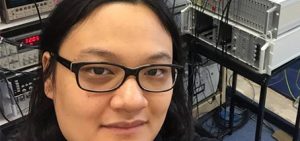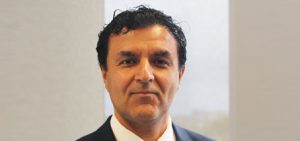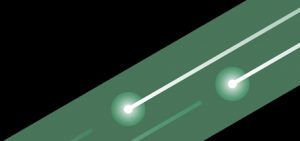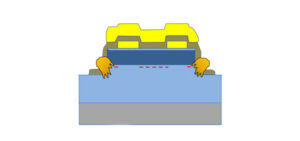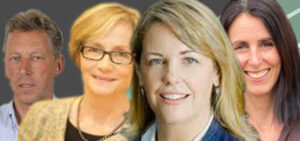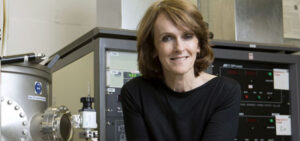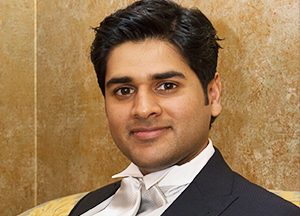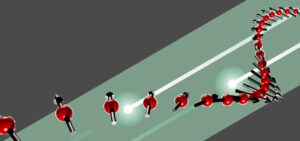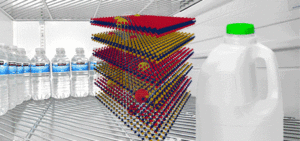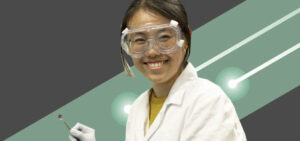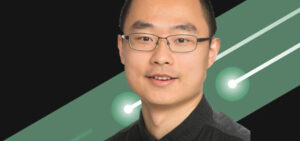Engage
See news from around FLEET, below
Catch up on all past issues of FLEET News newsletter
FLEET News
FLEET is committed to developing Australia’s next generation of science leaders, and to improving on the current imbalance of women in higher positions in STEM. Career support for women in FLEET works towards each of these two goals, providing an environment in which early-career women can thrive and progress, growing into capable and confident leaders. Four FLEET women were successful …
Spin-filtering could be the key to faster, more energy-efficient switching in future spintronic technology, allowing the detection of spin by electrical rather than magnetic means. A paper published last month by researchers at UNSW and international collaborators demonstrates spin detection using a spin filter to separate spin orientation according to their energies. Ultra-fast, ultra-low energy ‘spintronic’ devices are an exciting, …
Congratulations to ANU’s Matthias Wurdack on winning the AIP NSW Postgraduate Award this month for his presentation “Towards future low-energy transistor technologies with exciton-polariton superfluids in atomically thin semiconductors.” Matthias received the 2020 AIP Crystal Postgraduate figurine, and a $500 award from the Australian Institute of Physics. The NSW Branch of the Australian Institute of Physics in conjunction with the …
new thermoelectric materials could unlock body-heat powered personal devices, such as wrist-watches A new University of Wollongong study overcomes a major challenge of thermoelectric materials, which can convert heat into electricity and vice versa, improving conversion efficiency by more than 60%. Current and potential future applications range from low-maintenance, solid-state refrigeration to compact, zero-carbon power generation, which could include small, …
FLEET Chief Investigator Prof Kourosh Kalantar-zadeh has been named in the top 1% by citations in his field for the third year running. The Clarivate Analytics list identifies researchers ranking in the top 1% by citations for their field. The citation identifies influential researchers as determined by their peers around the globe – those who have consistently won recognition in …
Australia’s Minister for Education Dan Tehan announced $280 million in funding for new research collaborations to start next year. This month’s ARC Discovery Project and Linkage Project funding announcement includes eight grants for projects and facilities led by or involving FLEET researchers. While these projects are distinct from FLEET’s mission to build low-energy electronics, they testify to the capacity FLEET …
Removing random doping allows for reproducible manufacture of quantum devices A UNSW-led collaboration has found that removing random doping in quantum electronic devices dramatically improves their reproducibility – a key requirement for future applications such as quantum-information processing and spintronics. The quantum reproducibility challenge The challenge with making quantum devices is that, until now, it has not been possible to …
FLEET has significantly added to the expertise available to guide Centre policy and science, with the latest additions to the FLEET Advisory Committee (FAC) and International Scientific Advisory Committee (ISAC). We welcome to our Centre advisory committees Professor Rebekah Brown (Monash University), Dr Esther Levy (Wiley), Francois Peeters (University of Antwerp) and Joanna Batstone (ex IBM). Prof Rebekah Brown is …
CSIRO Chief Scientist Dr Cathy Foley has been named as Australia’s next Chief Scientist. Dr Foley is currently Chief Scientist at CSIRO, where as Deputy and Science Director of CSIRO Manufacturing, she engaged Australian manufacturers and researchers to translate research into economic prosperity. Her contributions to the understanding of superconducting electronics and devices were recognised with the 2014 International IEEE …
Distance and Covid will not stop science-outreach. Thank you Zoom!** **not a paid partnership : ) Students at Elsternwick Primary School in Victoria had the opportunity to learn about electrical power, in a hands-on exercise guided by on-screen FLEET members, and following two of the experiments from FLEET’s comprehensive Home Science library. “A unanimous ‘WOW!’ came from all four classrooms …
Congratulations to Priyank Kumar who received a Discovery Early Career Researcher Award (DECRA) 2021 round 1 announced today. With a success rate of only 17 percent, Dr Kumar’s project “A predictive, ab initio design of enhanced plasmonic photocatalysts” was among the 200 awarded in this round. By utilising state-of-the-art ab initio computations, Dr Kumar will design an efficient plasmonic …
Multiferroic BFO’s unique magnetic and electrical properties offer possible ultra-low energy data storage A new UNSW study comprehensively reviews the magnetic structure of the multiferroic material bismuth ferrite (BiFeO3 – BFO). The review advances FLEET’s search for low-energy electronics, bringing together current knowledge on the magnetic order in BFO films, and giving researchers a solid platform to further develop this …
Could a stack of 2D materials allow for supercurrents at ground-breakingly warm temperatures, easily achievable in the household kitchen? An international study published in August opens a new route to high-temperature supercurrents at temperatures as ‘warm’ as inside a kitchen fridge. The ultimate aim is to achieve superconductivity (ie, electrical current without any energy loss to resistance) at a reasonable …
Moore’s law is an empirical suggestion describing that the number of transistors doubles every few years in integrated circuits (ICs). However, Moore’s law has started to fail as transistors are now so small that the current silicon-based technologies are unable to offer further opportunities for shrinking. One possibility of overcoming Moore’s law is to resort to two-dimensional semiconductors. These two-dimensional materials …
What role does heat play in quantum impurity studies? A new, Monash-led theoretical study advances our understanding of its role in thermodynamics in the quantum impurity problem. Quantum impurity theory studies the behaviour of deliberately introduced atoms (ie, ‘impurities’) that behave as particularly ‘clean’ quasiparticles within a background atomic gas, allowing a controllable ‘perfect test bed’ study of quantum correlations. …


